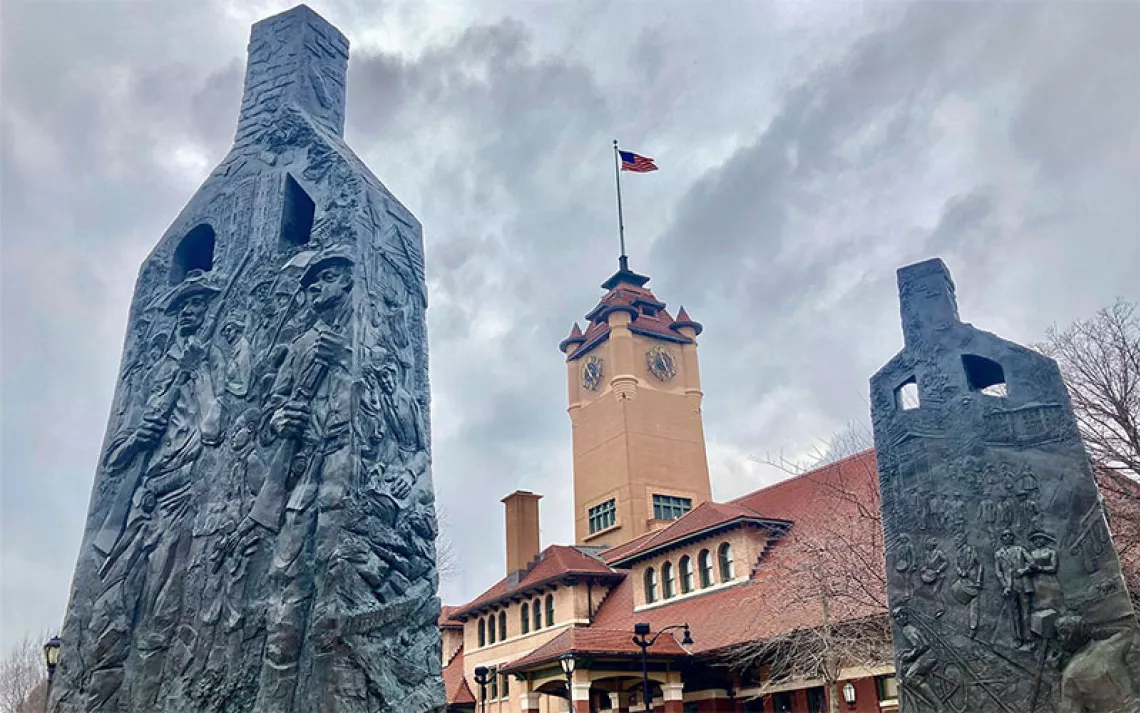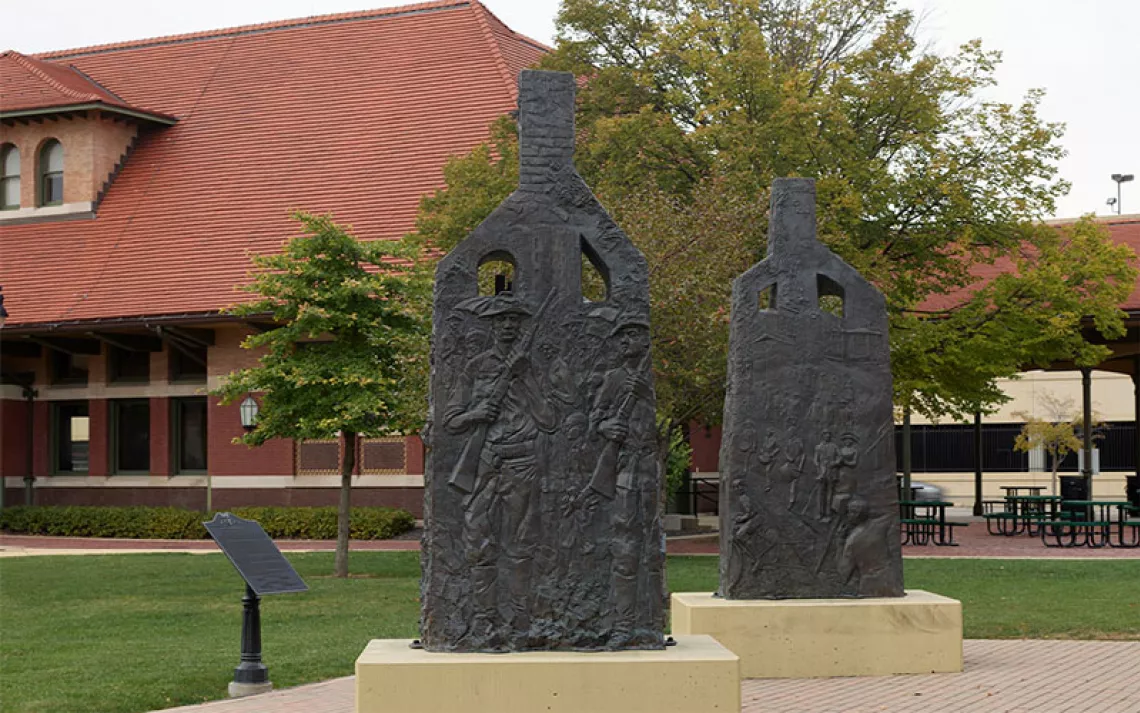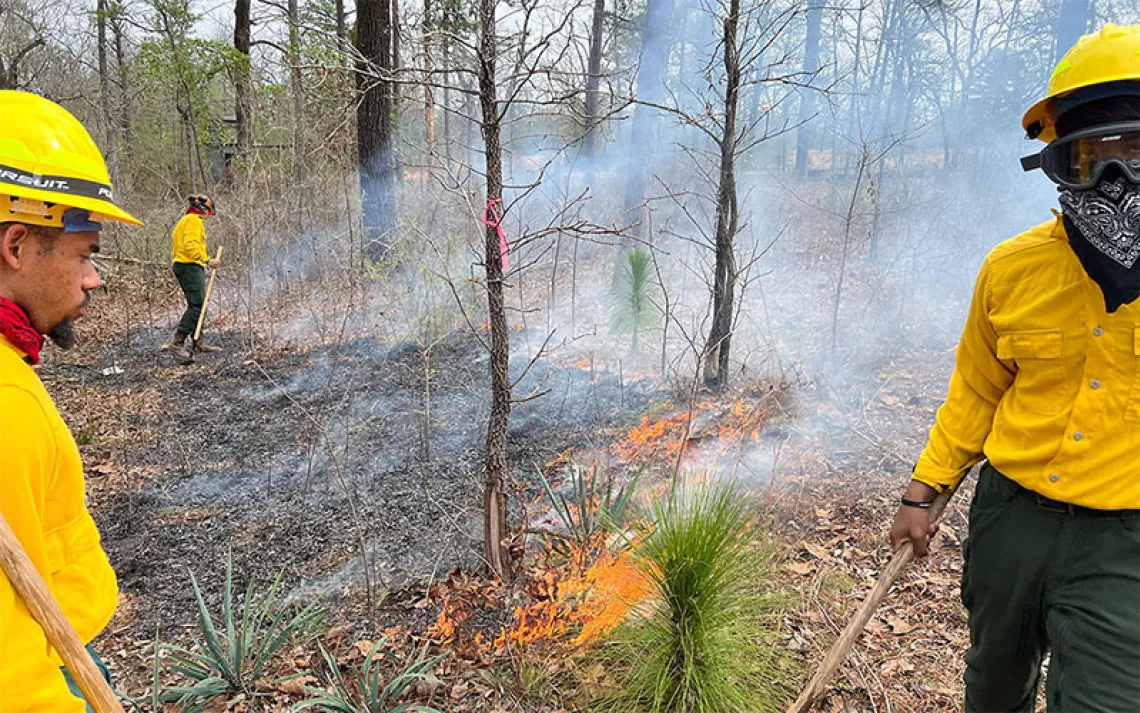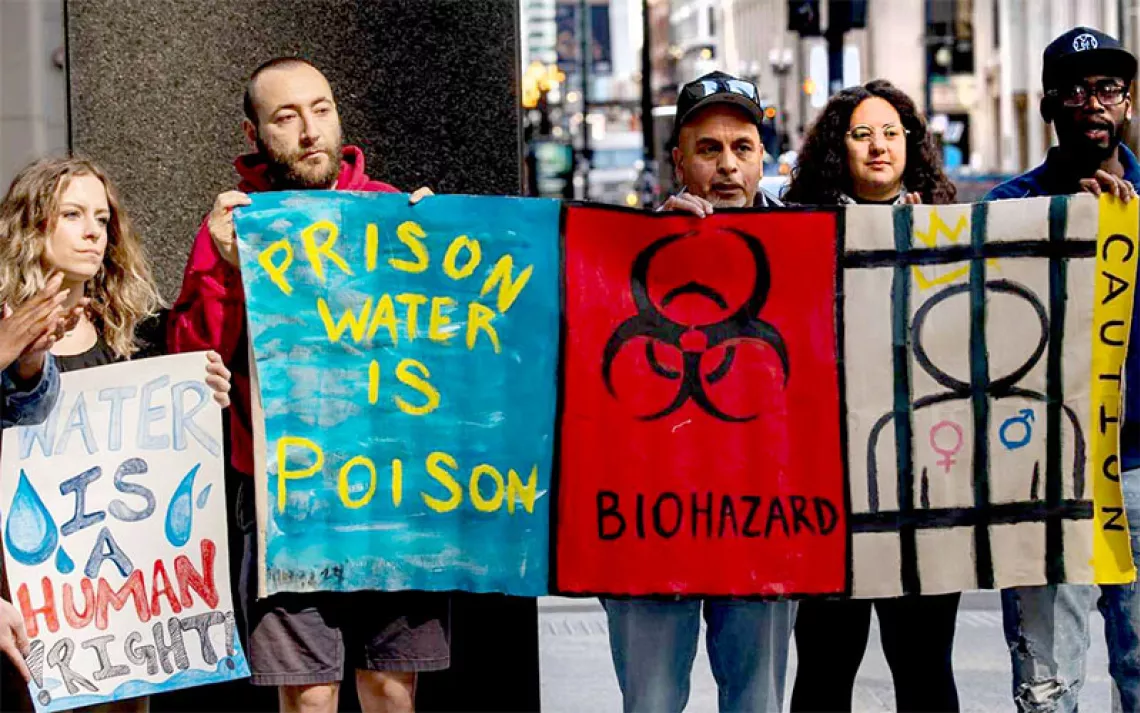ENVIRONMENT EXPLAINED
Welcoming Women of Color to the Outdoor World
Demiesha Dennis leads expeditions that challenge assumptions about the outdoors and who belongs in it
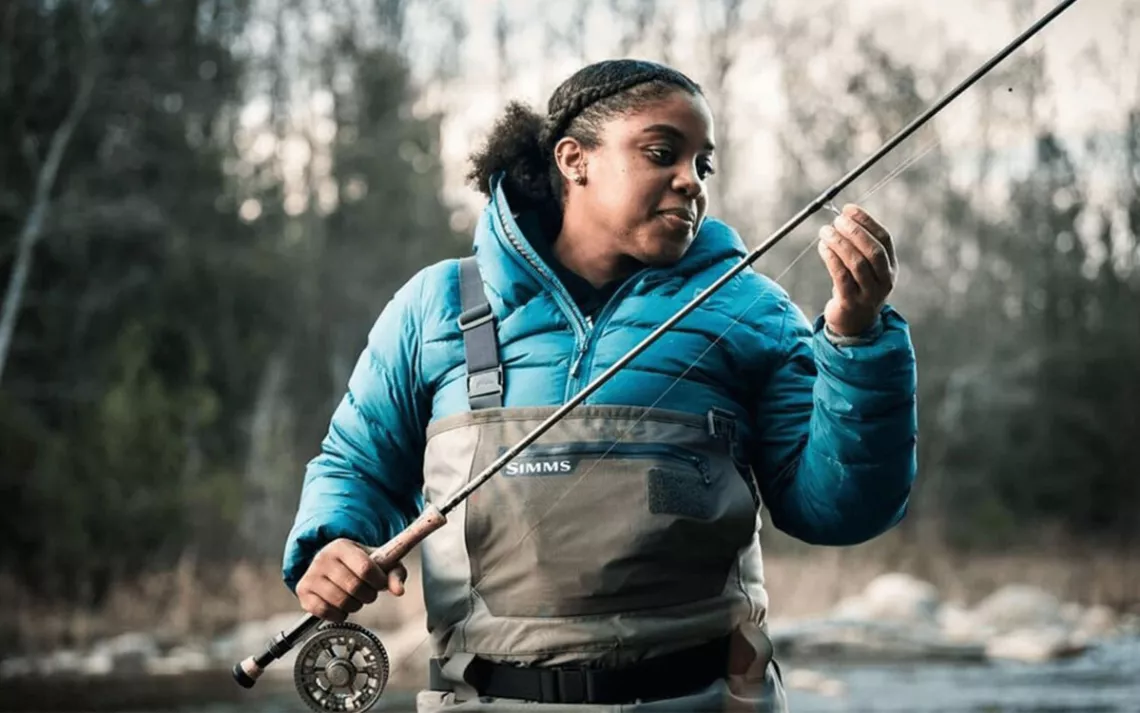
Demiesha Dennis, founder of Brown Girl Outdoor World, preps her rod for a day of fly-fishing. | Photo by Dave Coulson
When she first moved to Canada, Demiesha Dennis taught herself to fly-fish using only a stick, a crochet thread, and a safety pin. She had no prior knowledge of catching fish, but every week, she would trek to the shores of the Humber River in Toronto to figure it out. This was her version of a fishing rod—her way of being outdoors.
Now 41, Dennis credits this adventurous spirit to her upbringing in Jamaica. As a kid, she would watch birds and play in the soil while following in her grandmother’s footsteps. When she was older, she learned about camping and how to make tents with her local Pathfinders club. “Growing up, [the outdoors] was just … cool. And it was just fun,” Dennis says. So it was a shock to move to Canada and see that almost no one she knew had those experiences. “That relationship with nature just doesn't exist,” she says.
In 2018, Dennis decided to tackle this problem through the founding of Brown Girl Outdoor World, a community-run organization that works to break down barriers in outdoor adventuring. It began with hiking and fly-fishing expeditions with a small group: a handful of Dennis’s coworkers, her sister, and her partner. Since then, Dennis has led over 50 trips, introducing women from all walks of life to the joys of the natural world while partnering with other local initiatives. Her goal is to change the narrative on who belongs outdoors. The idea, she says, was that “maybe if I started inviting more people out with me, then I can see more people out here who look like me.”
Roughly 72 percent of outdoor recreation participants in the United States are white, according to a 2022 report by the Outdoor Industry Association—and this white dominance is mirrored in Canada and Europe. Studies have also shown that people of color are less likely to visit public parks, with African Americans making up only 6 percent of national park visitors in 2018.
Racism—both historic and current—drives the disparity. All of the US national parks were created out of Indigenous territory, and Native peoples were forcibly removed from their homelands. Today we see examples that channel this legacy: Birder Christian Cooper was confronted by a white passerby in New York’s Central Park in 2020. That same year, Ahmed Arbery was murdered while jogging in a suburban Georgia neighborhood. Dennis reports that a group of white men surrounded her car on her first solo fishing trip to Ontario’s Algonquin Park. Frightened, she set off her car alarm to draw attention to her situation, and the group ended up backing away.
Psychological safety is also a concern. People of color are perceived as “unicorns” in the outdoor sphere, says Judy Kasiama, an avid outdoorswomen and close friend of Dennis who founded Colour the Trails, another group that advocates for inclusivity in outdoor recreation. While leading her trips through places like Yoho National Park in British Columbia, Kasiama says the predominantly white faces her group encounters on the trails give them surprised or weird looks, take photos of them, or ask probing questions about what they were doing there. “It's a constant reminder that I somehow don't belong in that space,” she says.
The psychological discomfort means many people of color are intimidated to go on outdoor adventures. “That feeling of not belonging, or feeling like you're maybe misplaced or you're not where you're supposed to be” can also bring harm, says Dionne Daley, founder of BIPOC Outdoor Gear Library, a community-based lending library focused on providing access to outdoor equipment and increasing representation in this field. In her work, Daley has had many conversations with BIPOC recreators who want to try activities like cross-country skiing or camping but never had an opportunity to do so in a way that felt safe. “People really have a yearning for getting outdoors and doing outdoor activities,” she adds.
Dennis’s Brown Girl Outdoor World is focused on women older than 30. This is the group that’s most overlooked, she says, because outdoor education usually focuses on youths. She also says that if we “educate the educators,” teachers, parents, and caregivers can pass on outdoor knowledge to the next generation, breaking the cycle of exclusion and intimidation.
Dennis puts a lot of thought into making her expeditions a welcoming space for these women and women-identifying folks. For instance, when organizing trips, Dennis carefully vets local instructors and guides. There are a lot of assumptions made about racially diverse groups in places like ski lodges, she explains, where she’s gotten comments from lodge guests who were skeptical that Black or brown women could own their own equipment, or thought that they were a part of a charity group. So Dennis carefully chooses sites with staff who are attuned to these potentially negative interactions and focused on preventing them.
Dennis also organizes Zoom calls for trip participants to meet before longer overnight trips, asks them to share their pronouns, and crafts thoughtful acknowledgments of Indigenous land rights for the places they visit. “Those things go a long way,” says Mayoori Malankov, a regular participant of Dennis’s trips.
Perhaps most important, Dennis is vocal about her values and attracts like-minded people. Her Instagram feed is full of photos of diverse women in the outdoors, as well as her own musings about who outdoor adventure should be for. It’s these posts that first attracted Malankov and encouraged her to go winter camping in 2022, despite having very little camping knowledge and a dislike of cold weather.
“It was an incredible experience,” Malankov says. Since then, she’s fallen in love with downhill skiing and has gone ice climbing at Elora Gorge in Ontario. “Like, who am I?” Malankov laughs. “I just feel like I've done so many things that I don't know would have been possible if it wasn't for this organization.”
With the return of warmer weather, Dennis once again returns to fly-fishing. This year marks her fifth year of fishing trips—and it’s also where it all began. “That is my strongest connection point to nature. And I say that because when I do go on a river and I step into the water, I can feel the water hug around my ankles or on my legs,” she says. “For me, that's like a welcome from nature to say, 'Hey, you belong out here as well.'”
 The Magazine of The Sierra Club
The Magazine of The Sierra Club
